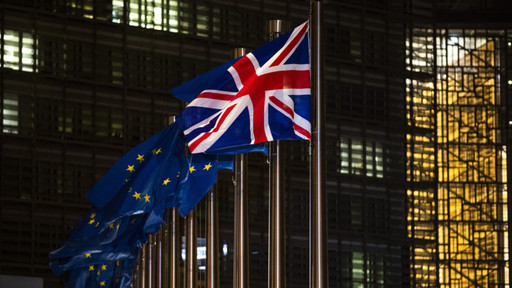On the deal – Mark Landler in NYT:
‘The world has changed radically since June 2016, when a narrow majority of people in Britain voted to leave the European Union, tempted by an argument that the country would prosper by throwing off the bureaucratic shackles of Brussels.
In those days, the vision of an agile, independent Britain — free to develop profitable, next-generation industries like artificial intelligence and cut its own trade deals with the United States, China and others — was an alluring sales pitch. The buccaneers of Brexit promised to create a “Global Britain.”
That was before the anti-immigrant and anti-globalist-fueled rise of President Trump and other populist leaders who erected barriers to trade and immigration and countries turned inward. It was before the coronavirus pandemic exposed the vulnerabilities of far-flung supply chains, fueling calls to bring strategic industries back home and throwing globalism into retreat.
In the anxious dawn of 2021, buccaneers are out of fashion.’
(…)
‘The Brexit agreement with the European Union comes at the very moment that President-elect Joseph R. Biden Jr. is replacing Mr. Trump’s “America First” credo with a message of mending alliances and collaborating to tackle issues like global health and climate change.
While the deal averts tariffs and quotas on goods crossing the English Channel, it is at heart about disentangling neighbors who had become deeply integrated over four decades. That estrangement, analysts say, is bound to weaken ties between the two sides in other areas, like security and diplomacy.
“Biden wants to see alliances and multilateralism and cooperation, and Brexit runs completely against that,” said Mujtaba Rahman, an analyst at the Eurasia Group, a political risk consultancy. “Brexit is graduating into a more difficult political context where it is running against the grain.”’
(…)
‘There are also limits to how muscular a partner Britain can be in the confrontation with autocratic states like China and Russia. Its changing relationship with China illustrates its diminished stature.
Britain once hoped its free-agent status would allow it to develop a thriving commercial relationship with Beijing, unencumbered by the baggage of the European Union or the United States. But under pressure from Mr. Trump on the role of the Chinese telecommunications giant Huawei in 5G networks, Britain has largely abandoned its cultivation of China, falling in line with the United States’ more antagonistic position.’
(…)
‘In 2016, Brexit was embraced by three distinct factions in British politics, said Matthias Matthijs, a professor of international political economy at Johns Hopkins University: right-wing anti-immigration figures like Nigel Farage; orthodox free traders in the Conservative Party; and some on the left, who hoped the move would free up money to subsidize factory jobs in the country’s industrial north and, in any event, regarded the European Union as a bankers’ club that Britain was well out of.
“It’s not clear that signing this E.U. trade deal will give them more freedom to do that,” Mr. Matthijs said of the subsidies, noting that Britain had agreed to abide by constraints on how much state aid it can dole out to industry.
The paradox, he said, is that Britain is casting off from the European Union at a time when its two largest economies, Germany and France, are embracing some of the tenets of industrial policy that inspired Brexit.’
(…)
‘Britain’s independence also affords it the chance to be experimental in its relations with other countries. Mr. Wright, for example, said the Biden administration might be interested in negotiating a different kind of economic understanding with Britain than an old-fashioned free trade agreement.
“They’re well positioned to be the guinea pig for this,” he said.’
Read the article here.
Brexit as the beginning of experimental relationship (it sounds almost kinky) and Britain as a guinea pig. This was not what the buccaneers had in mind in 2016, but I guess there’s no alternative.
If the political is the distinction between friend and enemy, it’s unavoidable that politics is an exercise in experimental relationships and what is the heart of these relationships? Turning subjects into guinea pigs with and without informed consent.
